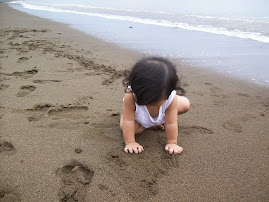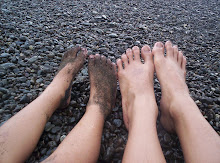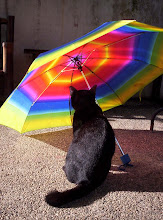
I finished Audrey Niffenegger's The Time Traveler's Wife last weekend. It was amazing. I am thoroughly absorbed by the story of Henry and Clare, of his jaunts in time, of how their love carried through. Henry is called a 'chrono-displaced person,' and it is thoroughly entertaining to read about his misadventures, although I could see how it could be frightening. Henry had a very keen survival instinct, aided by his uncanny skill in picking locks, running fast, pickpocketing, and imaginative lying.
And it is, at the core, a love story. Most of the feelings ring true for lovers, and it perfectly captures the sense of insecurity in every relationship. With love, we are never sure. We don't know how it starts, where it ends, why it hurts, when the other goes (or is taken away), what comes after. What we only know is that when we love with all our heart, everything else will come to pass. Even time.




















